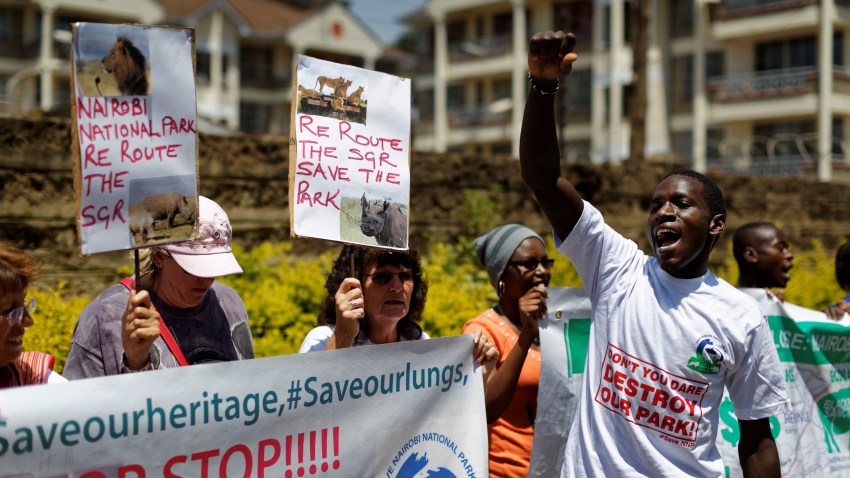A year ago, in July 2021, a prominent environmentalist was killed in Kenya. Joannah Stutchbury had been a vocal critic of a development project that was about to begin construction in Kiambu forest, a protected area of more than 1,000 acres near Nairobi, the capital. A third-generation Kenyan with British ancestry, Stutchbury had been fighting against the illegal corporate takeover of these lands when she was shot dead while clearing branches outside her home.
On the global stage, Kenya has a reputation as a center for wildlife conservation work, boasting 24 national parks, 15 national reserves, six marine parks and more than dozens of private conservancies. Its massive wildlife tourism industry is one of the most popular in the world, and the Kenyan government has been held up as an example for its investment in geothermal energy. The country even co-hosted the United Nations’ Stockholm+50 climate summit in early June.
But activists say the reality on the ground contradicts that image. Stutchbury’s death forms part of a pattern that has seen environmentalists across the country face harassment, abuse and violence from opponents and even from government officials and police. Despite the rising attacks, Kenya’s political leaders have done little to protect targeted activists like Stutchbury herself, who had received several death threats prior to the fatal attack.

